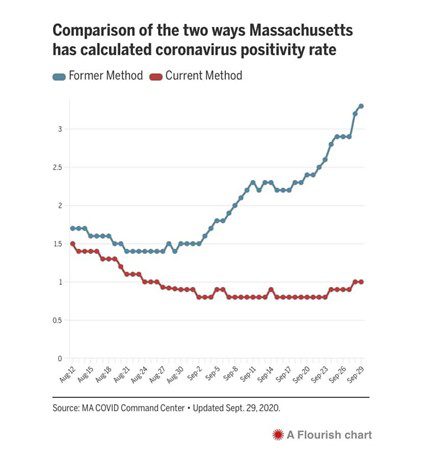Massachusetts has a halt on eviction until October 17. There is a Federal halt on eviction until the end of 2020. The state rules to qualify for a halt on eviction are not the same as the federal rules.
Since the Massachusetts halt on eviction is scheduled to end in a few weeks, people who are concerned about being evicted should start paying attention to the federal rules for eviction delay, in case no legislation is passed and signed by the current deadline.
Massachusetts Eviction Legislation
Massachusetts Representative Mike Connolly, Housing Chair Representative Kevin Hogan and Senator Pat Jehlen are proposing legislation to extend the moratorium on evictions through next year. You can check on the status of this Bill: H4878 . This is not resolved, as of this writing.
So far, the bill includes a tax credit for landlords who sustain losses due to nonpayment of rent. That would make it more
Federal Eviction Halt
The federal order to halt evictions through December 31, 2020 require that a tenant complete this form, and provide it to their landlord (tenant should also keep a copy for themselves).
Tenants need to claim that they have significant financial stress due to Covid-19 sickness, Covid-related unemployment, or excessive medical bills. They need to show that they have made an effort of access funds that are offered by federal, state, or local sources. They must show that they have made partial rent payments. They must state that they have no other place to live. The tenants make these claims under the warning that they may be prosecuted for perjury, if the form is not accurate.
My concerns here are not a mere technicality. If you are a tenant seeking a delay in your rental payments without eviction, you need to prove you have applied for “any available” rental assistance. How can you know you have found everything you might qualify for? You must show you cannot find another place to live. How can you prove you looked hard enough?
Here is the full federal order.
Local help: Cambridge/Somerville:
If you are out of this area, you can contact these offices to get the number of their counterparts in your town.
Somerville Office of Housing Stability
Note about evictions due to something other than nonpayment of rent:
The eviction moratorium measures are proposed to keep renters from being evicted if they cannot pay their rent because of Covid-19 related results. This legislation does not stop evictions because of other factors that a landlord may evict for, such as illegal or destructive behavior by the tenant.
The Realtors are against a moratorium on eviction
The Massachusetts Association of Realtors lobbied Governor Baker to not extend the moratorium on evictions. They are actively lobbying against the legislation that is being proposed by Massachusetts Representative Mike Connolly, Housing Chair Representative Kevin Hogan and Senator Pat Jehlen.
As is often the case, I disagree with my trade association. Their bias is to support property owner rights at all costs. What I see is too high a cost, in 2020.
The moratorium is necessary on a purely economic basis: People who cannot pay their rent are unlikely to find housing similar to their current situations. If people are evicted, it will force some of them into cheaper, more crowded living conditions or make them homeless. This will increase the possibility of an uptick in Covid-19 cases, triggering school and business closings. It threatens our economy.
The moratorium is necessary on a compassionate basis: There are over 9400+ people dead in Massachusetts from Covid-19. There are 140,000+ confirmed cases. 12,700+ people have been hospitalized (source). The families of the deceased and infirm are in economic turmoil, as well as suffering personally. It is right to give them time to recover, personally and emotionally.
The current bill going through the State House includes tax credits for landlord. I do agree that landlords should not suffer economically. However, I do not agree that tenants should sink or swim, if their family suffers illness or unemployment because of Covid-19.
Governor Baker and Covid-19
Governor Baker changed the way that Covid-19 testing is being reported. It used to be the number of positive cases. Now, it is the number of cases, as a percentage of the total number tested.
Tracking the new way gives the impression of stability, when Massachusetts actually had the second highest Covid-19 reproduction rate in the country. Why would Governor Baker change the way the data is collected? To support a continued opening of business and disregarding the health of workers.
Representative Connolly wrote: “Ever since many colleges and schools started coming back, the COVID-19 positivity rate per person (the blue line below) has shot up — but the metric the state now reports (positivity per test, the red line) has declined — creating a false sense of stability. See: https://bit.ly/36mHEmx
Gov. Baker always says his COVID response is “data-driven” and based on “the science” and “the facts on the ground” — but his administration is often cherry-picking (and withholding) the data and he too often ignores the science and the facts on the ground. This week I joined with public health experts, labor representatives, and community leaders to make these points, see: https://wbur.fm/3cTFUm7
Massachusetts now has the second-highest COVID reproduction rate in the nation, according to https://rt.live — indicating a significant risk of accelerating spread — and yet this week Gov. Baker is loosening restrictions on indoor activities, planning to allow evictions to proceed on October 17, and generally blaming poor folks and communities of color for being disproportionately impacted by COVID-19 without really addressing the systems of oppression that underlie that disproportionate impact.”


Leave A Comment